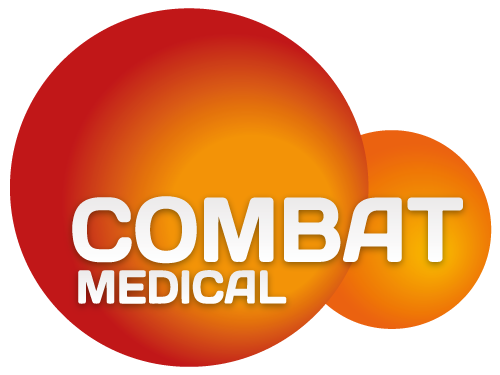Innovative research led by researchers from Imperial College London, UCL’s Department of Computer Science and Microsoft suggests that search engine data could be a game-changer for early detection of gynaecological cancer, especially ovarian cancer.
Ovarian cancer is the most lethal type in gynaecology, the eighth most common cancer globally in women, and the 18th most common cancer overall, yet it lacks a comprehensive screening programme. The new study unveils the potential of online search behaviour as an early detection tool, months sooner than GP referrals.
Google data demonstrated changes in search activities as early as 360 days before a GP referral, with good prediction accuracy at around 60 days in advance. Furthermore, unique symptom search patterns surfaced among malignant and benign groups, shedding light on disease presentation. For example, an increase in urinary symptoms emerged 140 days before GP referral, while pelvic pain and bloating were noted 70 days in advance compared to the benign group.
The authors commented that the research may pave the way towards early detection tools, helping identify women at higher risk of ovarian cancer in particular.
Barcroft et al. Using online search activity for earlier detection of gynaecological malignancy. BMC Public Health 24, 608 (2024):
https://bmcpublichealth.biomedcentral.com/articles/10.1186/s12889-024-17673-0
ALSO
Target Ovarian Cancer’s Pathfinder 2022 report into the current landscape of ovarian cancer in the UK found that:
👉 46% of GPs surveyed believed that ovarian cancer symptoms only present in the late stages of the disease, whereas symptoms are often present in women with early-stage disease
👉 Only 61% of GPs were aware that family history was relevant on both the mother’s and the father’s side, despite the fact that variants of the BRCA1 and BRCA2 genes can be passed on by both parents.
👉 31% of women who received genomic testing were not told how the results would affect their treatment options.
Online Search Activity and Early Cancer Detection: Opportunities and Ethical Considerations
In recent years, the digital footprints left by our online activities, especially search behaviours, have emerged as potential goldmines for early disease detection, including various types of cancers.
Every day, millions of people turn to search engines for health-related information. These searches often reflect individuals’ concerns about symptoms they are experiencing.
For ovarian cancer and other gynaecological cancers, early symptoms can be vague and easily overlooked. Analysing search queries can help identify patterns that correlate with early stages of these diseases.
Prediction of Epidemics
There have been instances where researchers have successfully used search data to predict influenza outbreaks:
https://www.ncbi.nlm.nih.gov/pmc/articles/PMC7268271/
Similarly, search data might be used to detect early signs of cancer.
The Potential of Search Data in Broader Cancer Detection
Identifying Symptom Clusters:
Cancers often present with a cluster of symptoms. Analysing search queries can help identify these clusters even when the user is not explicitly aware of their potential significance.
For example, a combination of searches related to unexplained weight loss, fatigue, and specific types of pain could indicate an early stage of a particular cancer.
Predictive Modeling and Machine Learning:
Advanced algorithms and machine learning techniques can analyse vast amounts of search data to find patterns that might elude human analysts.
This can potentially lead to the development of predictive models that alert healthcare professionals to early signs of cancer in patients.
But What About the Ethics Involved in All This?
Privacy Concerns:
The use of search data for health purposes raises significant privacy concerns. It is vital to ensure that individuals’ search histories are used in a way that respects their privacy and confidentiality.
The implementation of strict protocols and anonymisation techniques is crucial in this regard.
Consent and Autonomy:
The principle of informed consent is a cornerstone of ethical medical practice. Users should have a clear understanding of how their data might be used and must be able to opt in or out freely.
Autonomy must be respected, and users should not feel coerced into sharing their data.
Data Security and Management:
Ensuring the security of sensitive health-related data is paramount. There is a need for robust data management systems that can prevent unauthorised access and data breaches.
Regulatory frameworks must be in place to govern how this data is stored, accessed, and used.
What are the Challenges and Possible Future Directions?
Accuracy and Reliability:
While promising, the reliance on search data for early cancer detection has limitations. Not all search activity is indicative of an actual medical condition. Further research is needed to improve the accuracy and reliability of predictions based on search data.
Integrating into Healthcare Systems:
The integration of search data analysis into existing healthcare systems presents logistical challenges. It requires collaboration between tech companies, healthcare providers, and policymakers.
Pilot programs and controlled studies could be the first steps toward evaluating the feasibility and effectiveness of such integration.
The exploration of search activity as a tool for early cancer detection, including ovarian and other gynaecological cancers, and indeed all cancers, opens up new frontiers in medical diagnostics. This approach holds the promise of early intervention and improved patient outcomes. However, the journey towards effectively utilising this tool must be navigated with a keen awareness of the ethical implications, ensuring that privacy, consent, and data security are not compromised. As we advance in our technological capabilities, it is imperative that we balance innovation with responsibility, paving the way for a healthcare future that is both revolutionary and respectful of individual rights and dignities.

